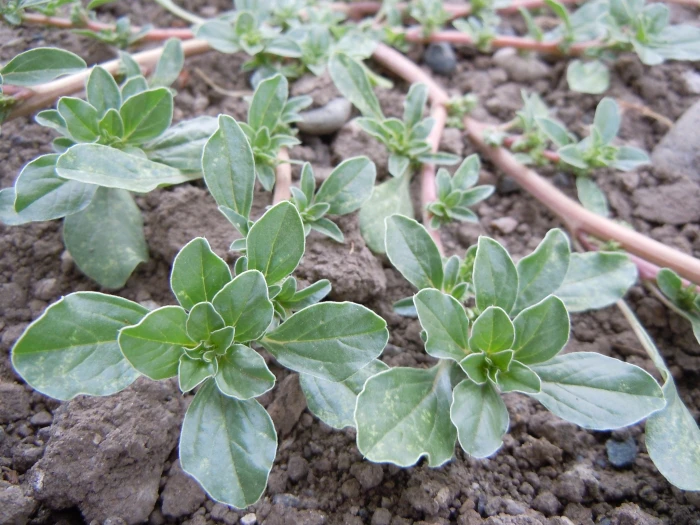California Amaranth
/
(Amaranthus californicus)
California Amaranth (Amaranthus californicus)
/

© Matt Lavin
CC BY 4.0
Image By:
© Matt Lavin
Recorded By:
Copyright:
CC BY 4.0
Copyright Notice:
Photo by: © Matt Lavin | License Type: CC BY 4.0 | License URL: http://creativecommons.org/licenses/by/4.0/ | Uploader: mattlavin | Publisher: iNaturalist |














Summary
Amaranthus californicus, commonly known as California amaranth, is a glabrous monoecious annual herb native to riparian zones, vernal pools, and other moist habitats in the western United States and Canada. It typically grows 4 to 20 inches tall and features green to reddish stems with simple, alternate leaves. The inconspicuous greenish flowers bloom from summer to fall and are followed by copious seed production, which contributes to its potential to spread.
California amaranth is valued for its ability to thrive in disturbed sites and its adaptability to various soil types, including those with poor nutrition. It is often used in restoration projects to stabilize soil and provide quick ground cover. In cultivation, it requires full sun exposure and well-drained soil. While it is drought-tolerant once established, it benefits from regular watering during prolonged dry periods. Gardeners should be cautious of its tendency to spread, especially in regions outside its native range, and may need to manage its spread by removing plants before seed set.CC BY-SA 4.0
California amaranth is valued for its ability to thrive in disturbed sites and its adaptability to various soil types, including those with poor nutrition. It is often used in restoration projects to stabilize soil and provide quick ground cover. In cultivation, it requires full sun exposure and well-drained soil. While it is drought-tolerant once established, it benefits from regular watering during prolonged dry periods. Gardeners should be cautious of its tendency to spread, especially in regions outside its native range, and may need to manage its spread by removing plants before seed set.CC BY-SA 4.0
Plant Description
- Plant Type: Herb
- Height: 1-3 feet
- Width: 1-2 feet
- Growth Rate: Moderate
- Flower Color: Green, Red, White
- Flowering Season: Summer, Fall
- Leaf Retention:
Growth Requirements
- Sun: Full Sun, Part Shade
- Drainage: Fast
Common Uses
Drought Tolerant, Erosion Control, Low Maintenance
Natural Habitat
Native to riparian zones, vernal pools, and other moist habitats in the western United States and Canada
Other Names
Common Names: California Pigweed, Californian Amaranth
Scientific Names: Amaranthus californicus, Amaranthus albomarginatus, Amaranthus carneus, Amaranthus microphyllus, Mengea californica
GBIF Accepted Name: Amaranthus californicus
